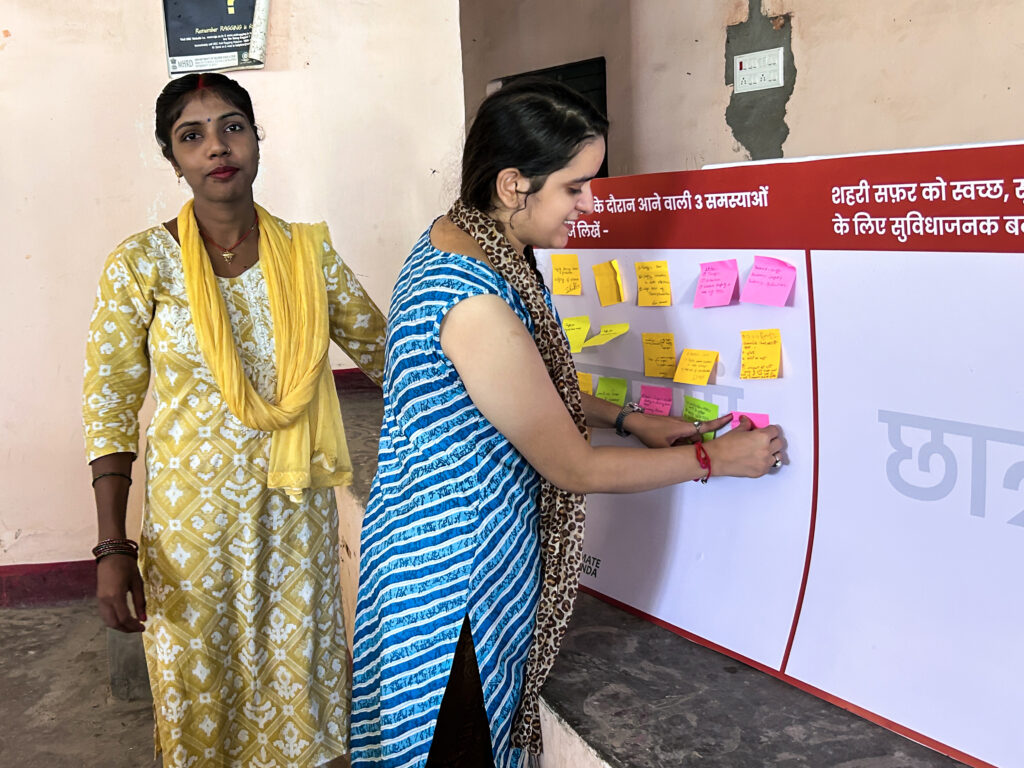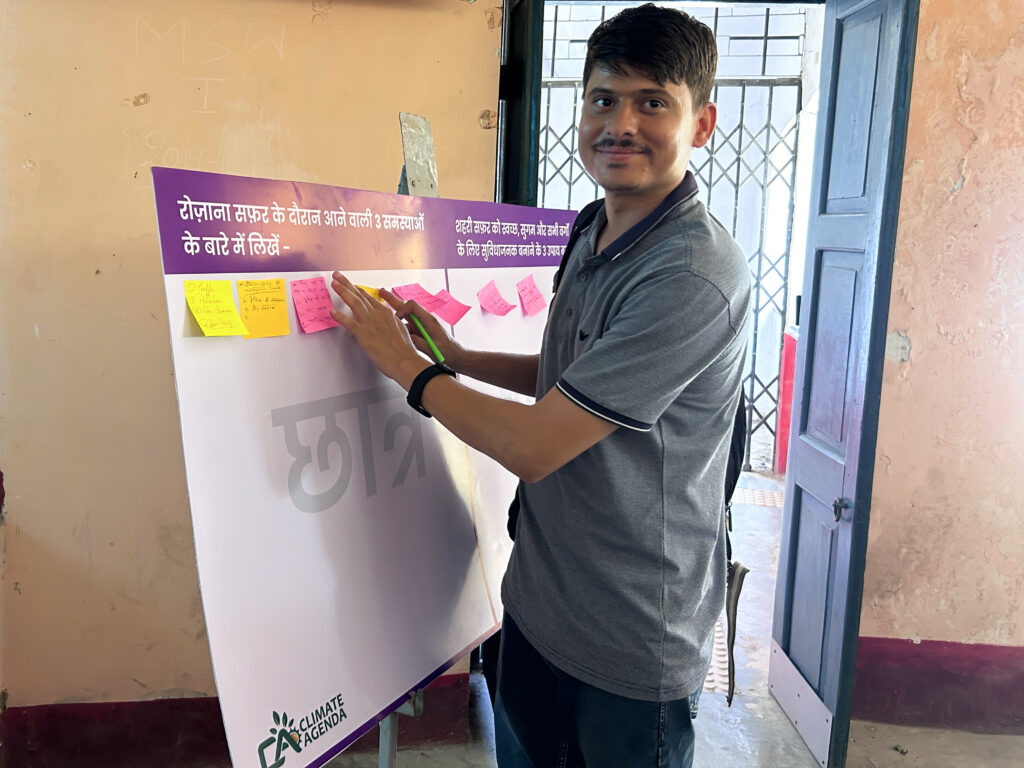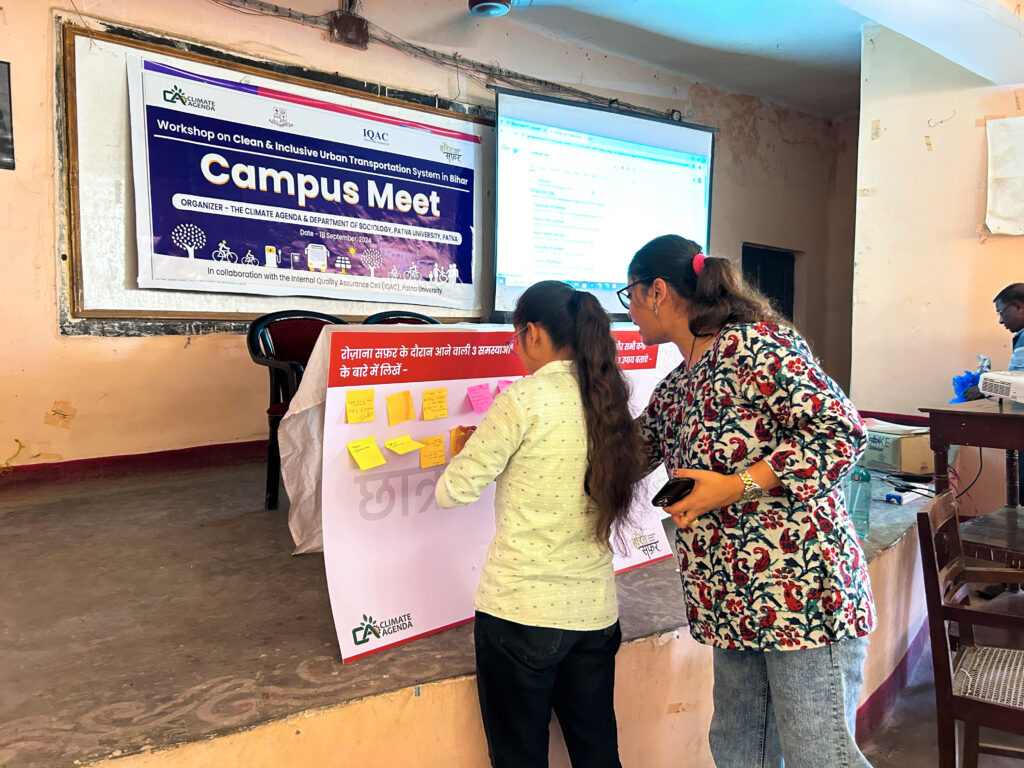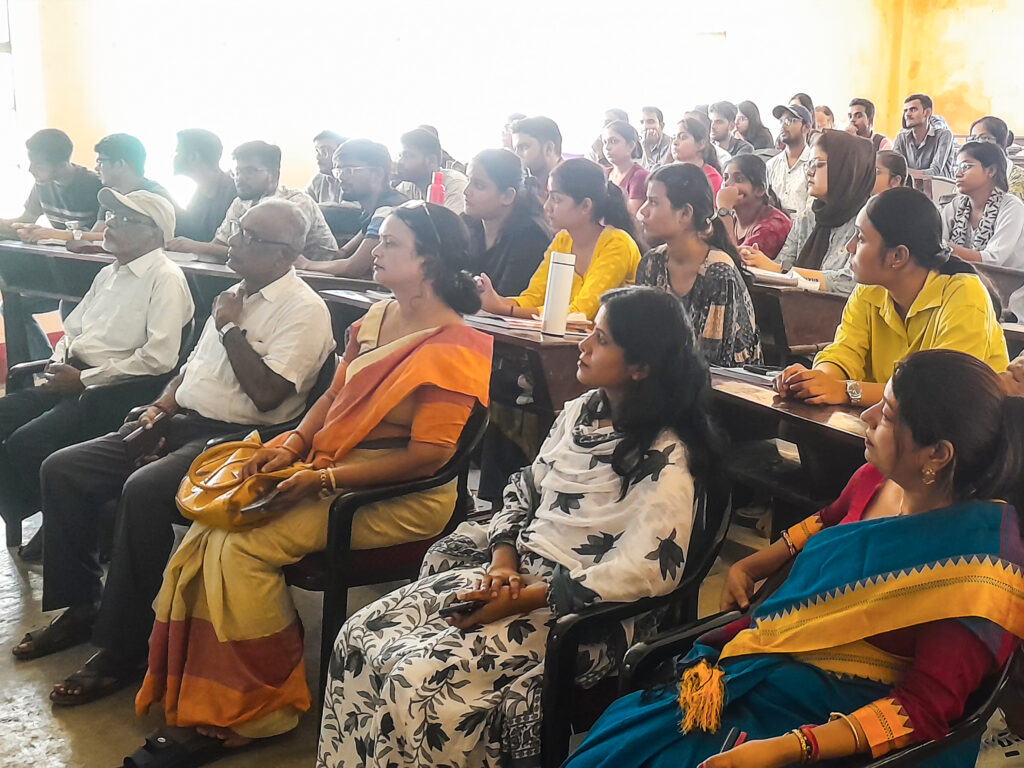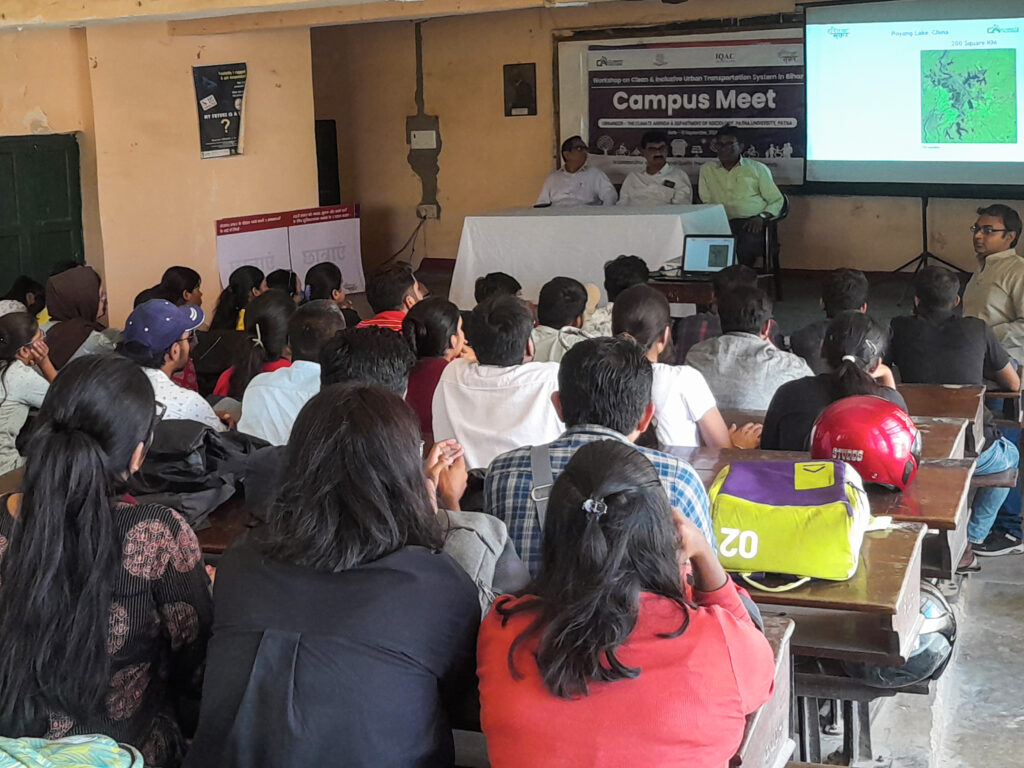Harit Safar's Campus Meet
Clean and Inclusive Urban Transportation System in Bihar
A campus meet was recently held at Patna University on 18 september, 2024 in collaboration with the Department of Sociology as part of The Climate Agenda’s Harit Safar campaign. The event brought together 70 students from the Sociology and MSW programs, alongside professors, research associates, heads of departments, and the IQAC director. The session began with a presentation on the primary objectives of the Harit Safar campaign, focusing on promoting Non-Motorized Transport (NMT) in Patna as a key step toward reducing carbon emissions and enhancing gender inclusion in the transportation system.
The session highlighted the efforts of The Climate Agenda under its Climate Adaptation Initiative, aimed at strengthening clean, green, and inclusive urban transport systems in Bihar and Uttar Pradesh. The organisation’s mission of fostering collaboration among civil society, academic institutions, and government bodies to achieve equitable change in high-emission sectors such as transport, energy, and industry was discussed. Additionally, participants were introduced to the organisation’s approach to climate change, which integrates diverse elements like art, culture, faith, and technology to create a holistic multi-stakeholder movement.
In the following session, Google Maps was used to analyse traffic patterns in Patna, drawing attention to issues such as congestion, inadequate last-mile connectivity, footpath encroachment, lack of bicycle lanes, and the adverse effects of vehicular pollution. A comparative analysis of transportation patterns in Patna and other metro cities in India sparked important discussions. While each city faces its own unique challenges, common insights emerged that can help shape better urban mobility solutions.Electric buses are now operating in Patna, but are they serving the routes with the highest demand? If not, a social audit of these routes is essential to ensure the city maximises the benefits of this eco-friendly or sustainable initiative.
The meet concluded with insights from Dr. Virendra Prasad, IQAC Director, and Professor Vijay Kumar from the Department of Sociology, both of whom emphasized the significance of incorporating environmental perspectives into urban development. Dr. Prasad highlighted the need for better water management and the development of satellite cities, while Professor Kumar stressed the importance of shifting to renewable energy to address Bihar’s growing electricity consumption. The discussions provided students and faculty with valuable insights into sustainable urban transportation, encouraging further participation in future climate-related initiatives.
